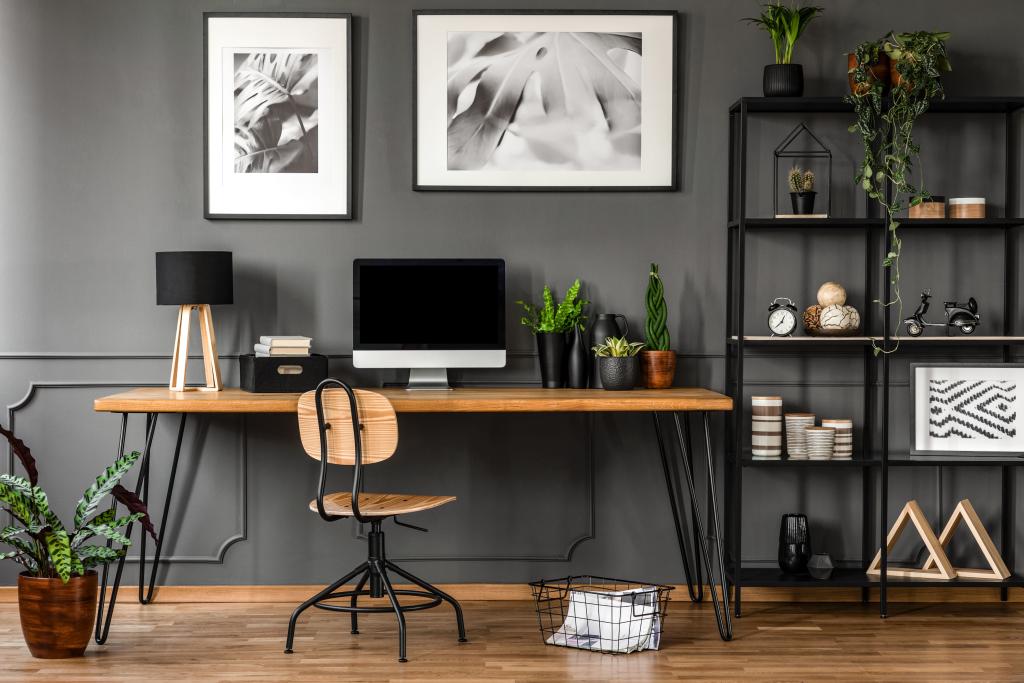If you have a home office simply for personal work or for a remote position, it’s important to keep your office secure. This goes beyond simply locking your door or file cabinet. Here are a few essential home office security tips:
1. Secure Your Router
Even if you don’t work from home, having a secure router is a smart move. This will reduce the risk of hacking and exposing important information. An easy step you can take right away is changing the default password to something unique to you that is not easy for hackers to guess. Use a variety of numbers as well as lowercase and capitalized letters.
Also, be sure to keep on top of your firmware updates. These updates work to keep bugs and hackers from accessing your personal information. For ease, set up automatic updates so you’re always protected.
2. Encrypt Devices
Another important tip for home office security is encrypting your devices. While this might be the default on your work devices, it doesn’t hurt to check. If it’s not turned on, be sure to turn it on.
Encryption simply encodes your information so that only you or other people who are authorized can view it. Each operating system has its own encryption software, so be sure to check which one your device uses.
3. Lock Doors and Cabinets
While protecting your devices is important, it’s also a good idea to protect physical information. If you have a dedicated office space, keep the door locked when you’re not around. Not setting up a dedicated workspace is one of the mistakes to avoid when working from home, and it can lead to mistakes or missteps when storing important documents too.
If you keep confidential documents in your home office, consider storing them in a filing cabinet or similar secure storage. Making sure to routinely declutter your office space will help keep sensitive documents secure. Locking the cabinet with either a key or combination lock will help avoid unwanted eyes seeing these documents accidentally and help prevent them from being stolen.
And just like you would be vigilant about locking your office building, be sure to keep your home office locked as well. This keeps anyone out who doesn’t need to be there and will keep devices safe and protected.
4. Update Your Operating System
Another important part of online security for your home office is making sure your operating systems are current. Current operating systems help your computer or other devices run properly and smoothly.
Along with running properly, current operating systems offer security patches. Security patches fix vulnerabilities that hackers could have accessed. This process is necessary for device security and safety.
5. Turn On Automatic Locking
Another way to keep your information in your home office secure is with automatic locking. Even if you think you’re the only one using your device, it’s still recommended to enable auto-lock. This ensures safety, especially if you walk away from your laptop or phone.
Automatic locking usually is a default setting on most devices. You can further customize it to lock after a certain amount of time. 30 seconds is recommended for mobile devices like tablets and phones, while 5 minutes is good for laptops or desktop computers.
6. Use a Strong PIN or Password
None of the above tips work without a strong PIN or password protecting your devices. This is an essential digital safety tip. Avoid easy-to-guess combinations, such as repeating numbers, birthdates, or address numbers. Your password should appear random to everyone except you. If you struggle to remember random passwords, try using a password manager like LastPass.
These are just a few essential home office security tips. Implementing these tips will help keep your home office and data safe and secure.

